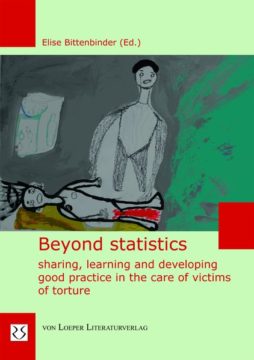In this book, we want to look beyond the statistics which are the main tool for considering the issue of refugees in the domestic politics of European nations. We want to show that behind the anonymous figures are people – many of them survivors of torture trying to start a new life after horrific experiences that have changed their lives and left them with scars that might never heal.
Those who address the needs of the survivors have to work in the sometimes awkward space between health and human rights, and their work is often carried out in the context of the heated nature of political debate. In rehabilitation centres, professionals work together to help re-establish identity, security and a possible future for those who have been traumatised at the hands of others.
Some of these centres have existed for more than 25 years – so there is clearly no lack of expertise in the field. But the pressure on their staff is so great – both in terms of the needs of their clients and the inadequate funding and resources with which they have to work – that systematic evaluation is rarely seen as a priority.
Evaluation is essential if practitioners are to know what works, but we wanted to ensure that our evaluation would reflect the complexity of our clients‘ situations. We chose therefore to adopt a descriptive and qualitative approach rather than one that would try to track cause and effect in a rather simplistic way.
This publication has been developed to disseminate good practice in working and treatment methods as well as indicators for the quality which is agreed to be essential to our work. Our aim is to improve our provision of services to survivors of torture and to give them access to what is, after all, their right: the highest quality of care and rehabilitation.
- Veröffentlicht am Montag 21. Mai 2012 von Loeper Karlsruhe
- ISBN: 9783860593370
- 136 Seiten
- Genre: Angewandte Psychologie, Sachbücher
